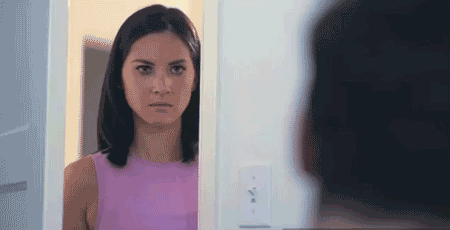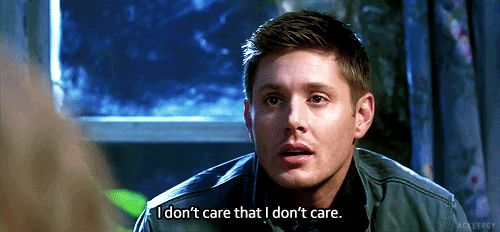The Internet Is Turning Us All Into Passive-Aggressive A**HOLES
Are you as much of a jerk in real life?
 weheartit
weheartit If the Internet is good for anything, it's showing just how dysfunctional we all can be as people. Through the magic of social media, in the span of a few keystrokes, we can effectively alienate and infuriate everyone we call a "friend."
So how did we reach this point? What is it about the Internet that makes it so attractive to be passive-aggressive — and more importantly, how did it become so acceptable?
When someone pisses you off, one of the hardest things to do is confront that person with how you really feel. It's tough for some to own up to their anger and say what they mean as they mean it.
Many people, on the whole, are non-confrontational, and that's probably for the best. That said, there's nothing easier than sending out a subtweet or random Facebook post to strike at an unwitting victim. It can be done from a smartphone, tablet or laptop, and it can be done from the comfort of just about anywhere.
Generationally speaking, many millennials weren't taught to be assertive, or even know how to manage simple emotions in a direct fashion. Life spent online only magnifies those flaws, so by comparison, sending out a pissy subtweet sulking about whatever grave injustice just happened is both simple and often effective.
Sometimes that subtweet or random post will seem to not have a target — but it always does. With the protection that comes from typing from the safety of one's own computer or smartphone, it's simple to artfully (if not tactfully) go after anyone at any time, and because everyone has "friends" or "followers", there's an instant captive audience.
For the most part, the level of anonymity the Internet affords us also gives us a platform that few of us have, and that led to a growing number of unsophisticated people who speak without any filter whatsoever. That lack of sophistication rears its head not only in passive-aggressive tweets and posts but also in the way people digest what they read.
Because typing words 140 characters at a time omits facial expressions or non-verbal cues, any attempt at sarcasm is often misread as someone being serious, and without that level of communication, it's easy for disagreements to devolve into catty back and forth exchanges that only make things worse.
The anonymity and perceived safety of being passive-aggressive online also brings with it overly-negative side effects. Because so many conversations online are one-sided, people often say whatever they want, without thinking about the potential consequences.
Every day, people are outed for rude and often bullying tweets and posts that end up going viral. Despite the fact that people have been known to lose their jobs or suffer some form of public ridicule, due to what they say online, there's always someone ready to sacrifice themselves to the wolves of the Internet, whose justice is both swift and every bit as unsophisticated as the accused.
That's right, our passive-aggressiveness is so bad that it not only affects those who intend to offend but also infects those who take it upon themselves to call out the offender.
Take, for example, the controversy surrounding gun control. People from both sides of the issue took to the Internet to voice their support or displeasure, and it was here that the passive-aggressiveness flowed like cheap box wine.
It wasn't important to have reasoned conversations about such a sensitive topic. Instead, things devolved quickly into back and forth squabbles where people openly attacked one another for their views, all masked under the guise of making a point, or at least trying to.
The more time we spend online, the easier it becomes to operate in a way that practically avoids confrontation. Behind the safety of a keyboard, bombs of cruelty can fly as if they were fired from a military drone. A person can hit their targets from miles away and there's little to stop them.
By the very nature of things, passive-aggressiveness on the internet is here to stay, for better or worse, and until people are held accountable for what they say and do online, this is a problem that will only get worse before it gets any better.



